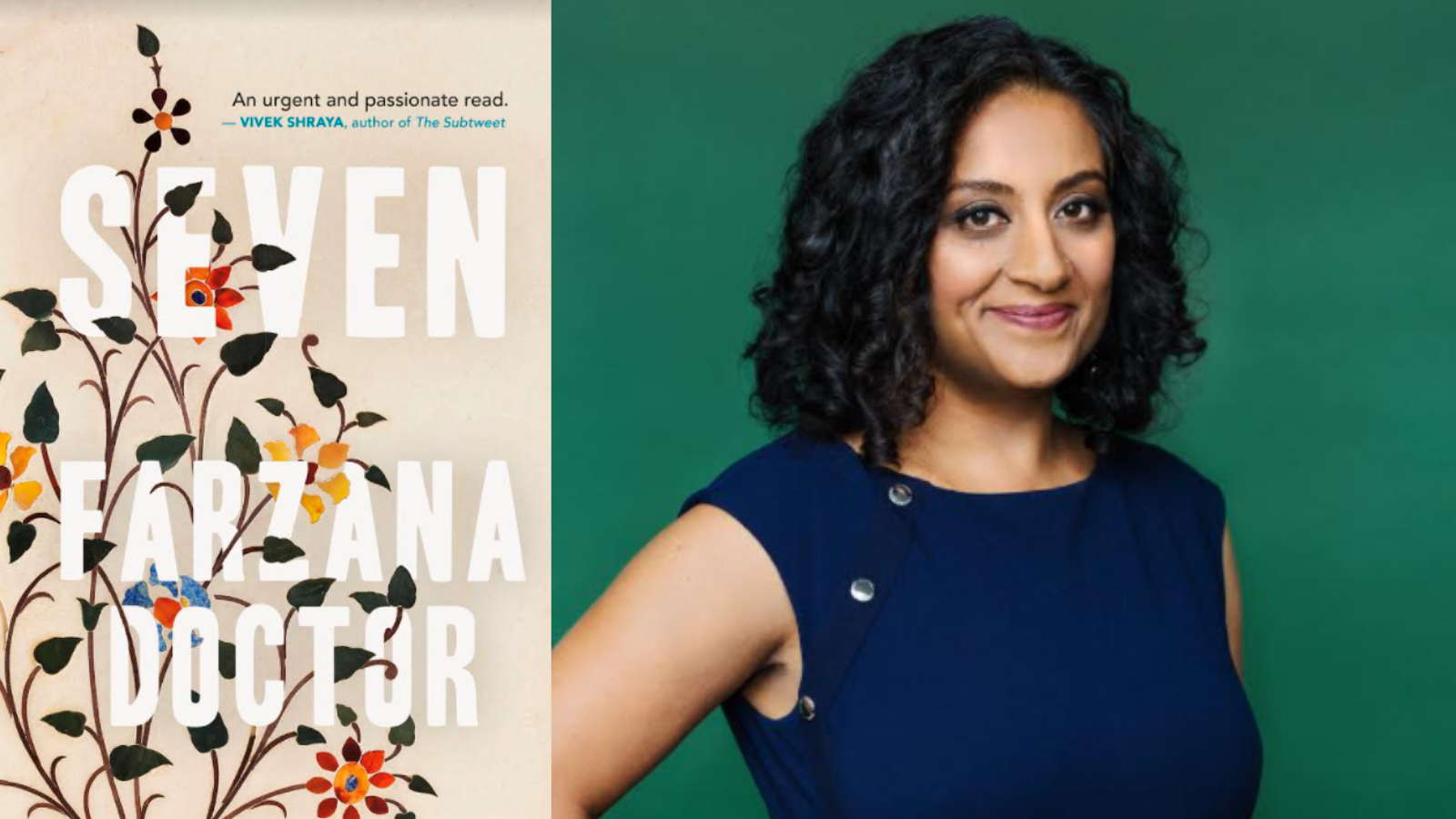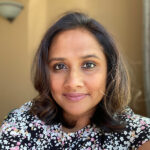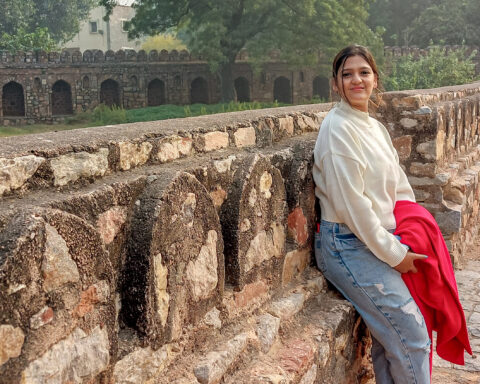When I finally pin down Farzana Doctor —she’s been on a promotional whirlwind— for an interview, we find out that we have a lot in common. For one, we both have families in North India who attended a large, lavish wedding in March this year, bang in the middle of a pandemic. “Luckily, no one got sick, but how cavalier of them,” she says. We also have senior family members—mine, right-wing extremists and hers, ultra-orthodox conservatives—who we love and adore, but “don’t respect much.” These messy and complex intergenerational relationships within a family are a dominant theme in her latest book, which was recently nominated for the prestigious Trillium book award.
Seven puts out a new perspective as it addresses female genital cutting or khatna in the Dawoodi Bohra—a sub-sect of the Shia Islamic community. The central character, Sharifa, on a trip to India, discovers aspects of her family history that are both inspiring and shocking. She learns about the age-old ritual of female genital mutilation (FGM) and is forced to take a position on it after she is confronted with an unexpected truth. Doctor herself is a survivor of female genital mutilation (FGM) and has been an outspoken activist on the issue.
The author spoke to New Canadian Media’s Baisakhi Roy via phone. The following is a condensed version of our conversation.
Seven came out in September 2020 and you had to promote it in March— just when the pandemic hit. What was that like?
It was hard! A lot of publishers were figuring out what to do about COVID. I got very active in a way that I haven’t since my first novel, trying to figure out how to pitch people, who to contact and how to do my social media better. So, since April 2020, I’ve been very focused. The huge positive that came out of it was that because everything moved to virtual, it has meant that I have been able to reach audiences that I probably wouldn’t have had access to before. There’s no travel, no expense. I connected with audiences in India, from across Canada and all over the US. I’m glad that I was so busy this year. It was a disheartening, anxious year but all that activity kept me very focused on a goal and that was pretty helpful.
What has this past year been for you creatively?
I’ve been editing some projects—a YA novel that my agent is trying to sell right now and a poetry collection that is coming out in Spring 2022. There were some days when the anxiety of COVID made it difficult to focus and more importantly to read. One thing I did that helped is a group I started on Facebook called Writing Sprint. Members would post that they were writing from a certain hour to a certain hour and encouraged people to join in. We don’t see each other but just knowing that in this hour everyone else is writing, has helped me to stay a little more focused.
Your work—from your first novel, Stealing Nasreen, to now, Seven, focuses on the lives of immigrants. Tell us a bit about some of the themes in Seven—belonging and community and relationships that are so complicated, even more so perhaps for immigrants who are constantly juggling between two worlds.
I came to Canada as a baby. So my experience has really been about soaking in my parents’ struggles. Children absorb the anxieties and stresses and try to make sense of what their parents are experiencing as immigrants. I understood so much in terms of social cues, the way things worked in this system because I went to school here. And that is consistent through all of my novels: bringing in that experience and wanting to show and explore some of that reality. It has been different in each book. Stealing Nasreen was about an early immigrant experience. Six Metres of Pavement is about a guy who has been in Canada for 20 years and still does not fit in anywhere. In Seven, the protagonist comes to the U.S. as a 4-year-old but has a deep love for her family and cousins in India. For me the question has always been: what does it mean to belong to two worlds and not belong to either?
Seven has many memorable female characters. The one that stayed with me was Sharifa’s Maasi (maternal aunt). Every family has a person like that—a revered, much adored figure, someone we’ve grown up with, who also has diametrically opposing views that may cause harm and anguish. Sharifa does try to understand Maasi’s point of view about khatna. How did you frame Maasi’s pro-khatna character?
Maasi was more of a villain in the beginning. I knew I needed to round her out. If we ever are going to change this issue of FGM, we have got to do it with nuance. The issue itself is very nuanced. All of the perpetrators are victims themselves of intergenerational violence and none of them are monsters.
There are people in my family that I don’t connect with like any other family, some that I don’t respect much but there’s still love and a sense of nostalgia for a past relationship with them. It’s about understanding that these are just people. Only in the past 5-6 years has this issue of khatna entered into mainstream discourse in the Dawoodi Bohra community. I wanted to present the fact that there is this spectrum of belief and orthodoxy.
Seven essentially is about the practice of khatna or FGM in the Dawoodi Bohra community. You are a survivor of khatna and this story and characters are from personal experiences as well. Was it hard to revisit these experiences while writing the book and is it hard to then talk about it constantly when talking about the book in interviews?
This is the most personal book I’ve written. This is not a memoir, it’s fiction but I have gathered experiences and stories from survivors and even from my own. There were moments that were difficult. I started writing this book when I started my activism with WeSpeakOut and I was integrating a lot of activist knowledge while making sense of my own personal experience. But this book was just coming out of me, fully formed fictional scenes—I had no choice but to write it. I worried that in promoting it, what would it be like to talk, talk, talk about this trauma. So I did a lot of prep, a lot of therapy, practised with journalist friends about answering certain questions. But then I also realized that this is an opportunity to get the word out about this issue. I am taking breaks and taking time for self-care.
It feels like good activist work but I had to make sure that I didn’t get bogged down because life is much more than our traumas. We need to be focused on joy too.
You have been a practising psychotherapist for years and it shows in your work as well— the time and attention and love that you lend your characters, the way you describe how trauma works and healing works. How does being a psychotherapist inform your work?
I try to have my novelist hat on first but the other parts of me— therapist (for 30 years now) and activist, end up coming through. It’s funny, I met people at parties back in the day when we could, and within two minutes, I could identify a person’s attachment style (laughs). Of course, my characters will be psychologically very informed. I also like to ensure that there is correct psychological information. Because there is so much misinformation out there about how people experience and remember trauma. I wanted Sharifa to be a character who was a bit clueless and closed up so I wanted someone very close to her, her husband, Murtuza, poking and prodding her. I made Murtuza someone who was a little bit anxious and who relied on research to express his anxiety. He might be slightly atypical in that respect. Through Sharifa, the reader also learns about trauma in digestible bits.
I read in the acknowledgments that your father urged you to look into your history. How much does it mean to you to have the support of the people you care for when writing a book like Seven—where you speak about a subject that no one speaks about?
As a child, I had a lot of questions about why people do the things that they do. I grew up in a family where my father had renounced religion as a young man and my mom was lukewarm to it. I have a huge extended family, many of whom are quite orthodox. In 2015, I reconnected with my community by meeting a group of feminist Bohra women through WeSpeakOut. The feminist Bohras are my people, even more than my relatives. I feel more Bohra than I ever have in my life, knowing that this subsection of really beautiful feminists is in the community.
What are your hopes for this very personal work of yours?
I still don’t think people in the wider community want to talk about this issue. People have reached out to me and are grateful for this book. My activist friends consider this a contribution to the movement. I hope this gets published in India soon and reaches the much larger community that exists in India.
Female genital mutilation is child abuse and should be reported to authorities.
Baisakhi Roy is a writer and journalist based in Oakville. Her work has been published in several Canadian media outlets including The Globe and Mail, Huffington Post Canada, Chatelaine, Broadview and CBC. Her areas of interest and expertise lie in the intersections of immigrant life and culture in Canada. She is an avid Bollywood fan and co-hosts the Hindi language podcast KhabardaarPodcast.com.





